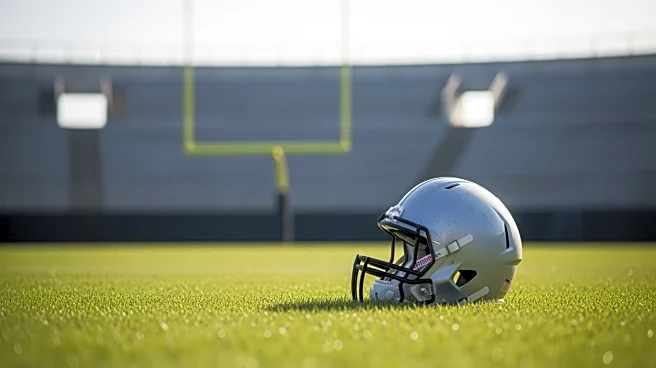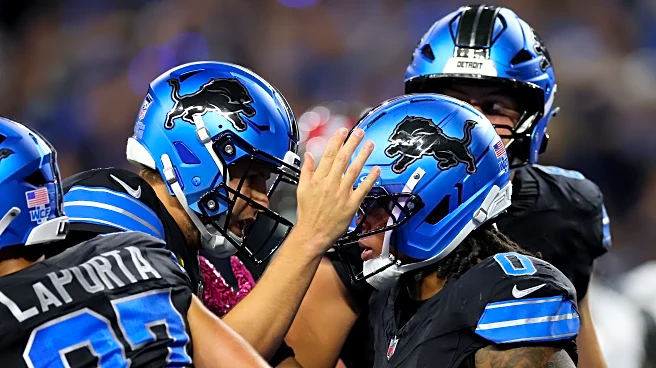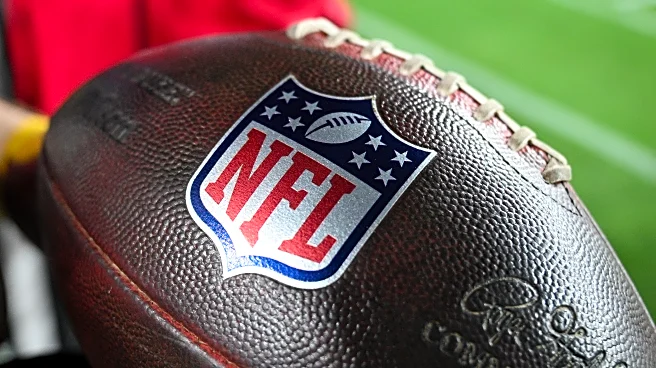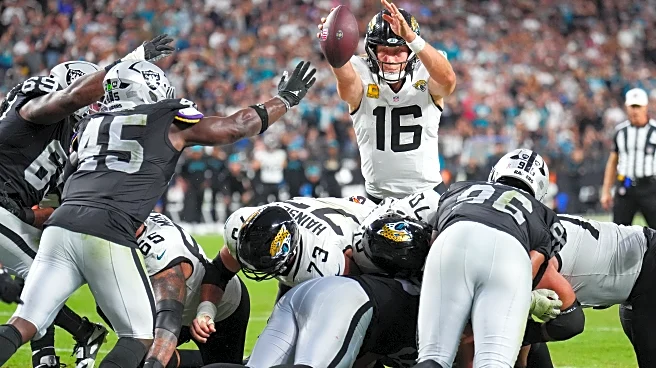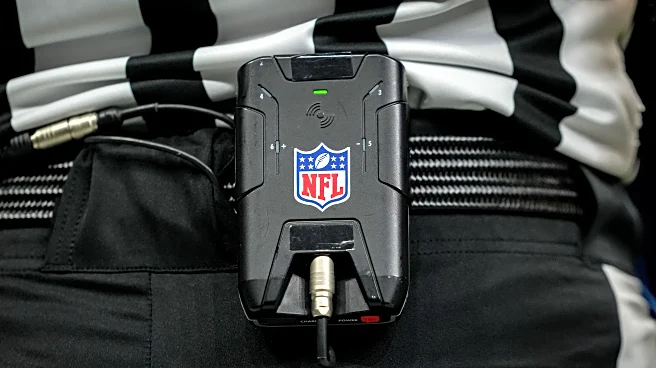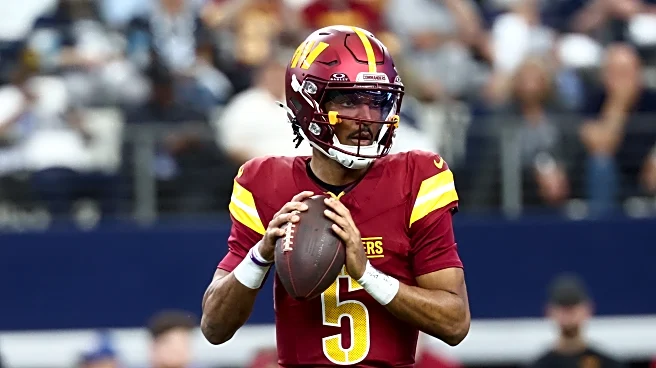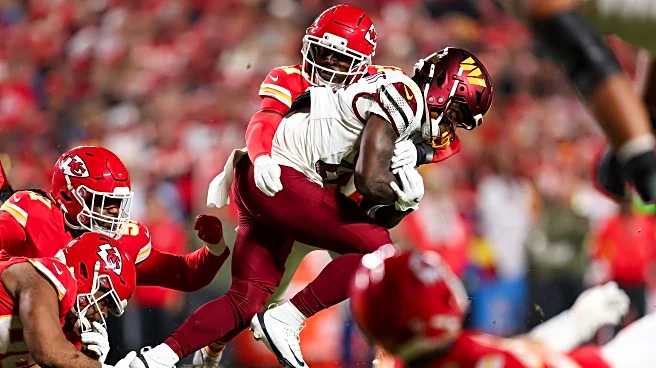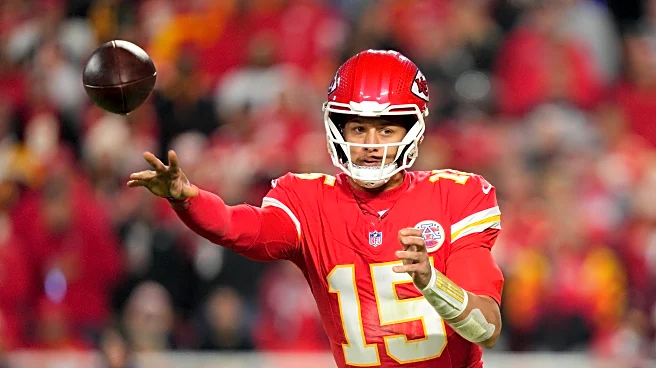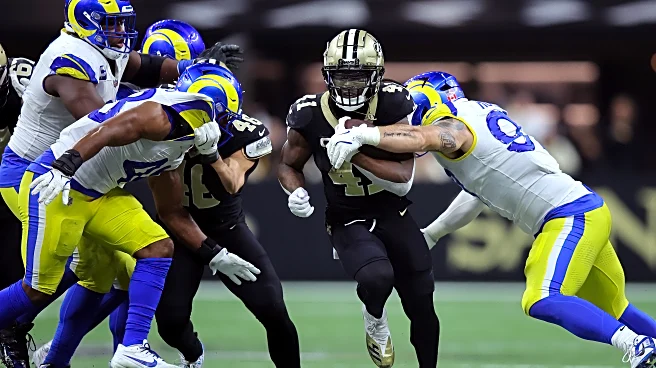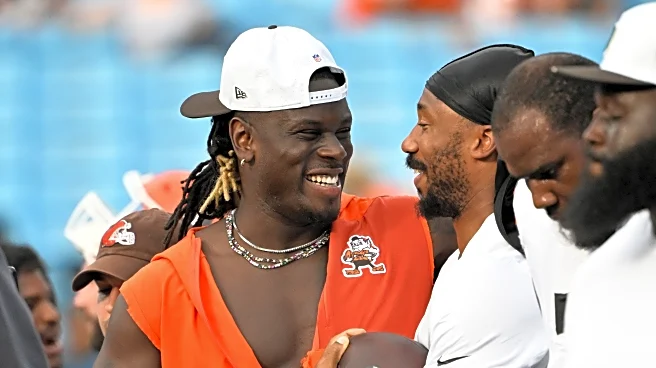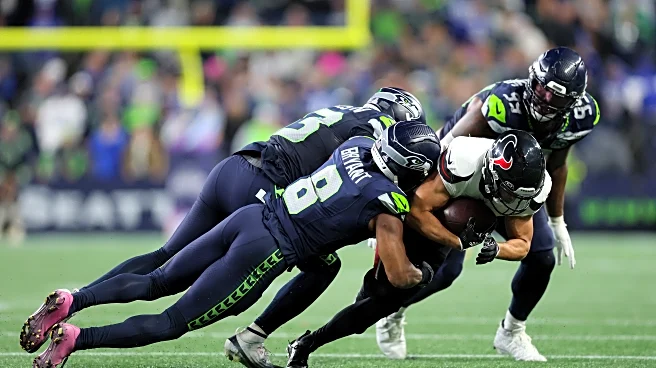What's Happening?
Robert Griffin III, once a promising talent in the NFL, saw his career trajectory altered significantly due to a severe knee injury during the 2013 NFC wild-card game against the Seattle Seahawks. Griffin,
who had already suffered a torn ACL in college, was playing with a sprained LCL and wearing a knee brace during the game. In the fourth quarter, he sustained tears to his ACL, LCL, and meniscus, requiring surgery and an eight-month recovery period. Despite returning for the 2013 season, Griffin struggled to regain his previous form, recording diminished stats compared to his rookie year. His injury history continued to affect his performance, leading to a decline in his career with subsequent teams, including the Cleveland Browns and Baltimore Ravens.
Why It's Important?
Griffin's injury highlights the precarious nature of professional sports careers, where a single injury can drastically alter a player's future. His case underscores the importance of player health management and the potential long-term impacts of injuries sustained during games. For the NFL, it serves as a reminder of the need for stringent safety protocols and medical oversight to protect athletes. Griffin's decline also affected team dynamics and strategies, as the Washington Commanders had to adjust their plans without their star quarterback, impacting their competitive edge and fan engagement.
What's Next?
While Griffin's playing career has ended, his experience continues to influence discussions around player safety and injury management in the NFL. Teams may reevaluate their approaches to handling player injuries, especially concerning the decision to play athletes who are not fully recovered. Griffin's story could also inspire changes in training and rehabilitation practices to better support athletes in their recovery journeys.
Beyond the Headlines
Griffin's injury saga raises ethical questions about the pressure athletes face to perform despite health risks. It also highlights the cultural expectations placed on professional athletes to prioritize team success over personal well-being. Long-term, Griffin's experience may contribute to a shift in how injuries are perceived and managed in sports, potentially leading to more comprehensive support systems for athletes.
